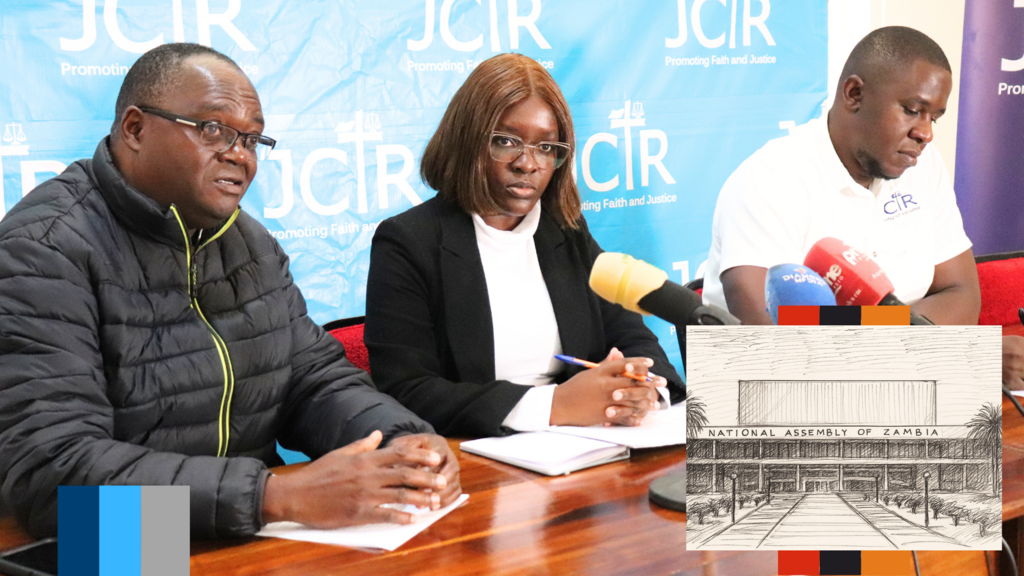
LUSAKA, ZAMBIA – As President Hakainde Hichilema prepares to open the Fifth Session of the Thirteenth National Assembly on Friday, 12 September 2025, the Jesuit Centre for Theological Reflection (JCTR) calls for an address that speaks not only to national achievements but also to the daily struggles of ordinary Zambians.
Since 2021, successive addresses have highlighted progress in macroeconomic stability, debt restructuring, and growth in sectors such as mining and agriculture. While these gains are important, JCTR urges that the 2025 address demonstrate how such progress is being translated into reduced poverty, improved access to social services, and a better quality of life for households.
Context and Anticipated Themes
The 2025 Presidential Address comes at a critical moment, with Zambia recovering from the economic and climate shocks of 2024 while consolidating recent gains. The theme is expected to emphasise unity, continuity, and prosperity — linking past progress to the government’s electoral aspirations ahead of 2026, with 7,073,513. Zambians are currently registered to vote. Citizens can anticipate updates on macroeconomic performance, including a rebound in GDP growth to 4.5% in early 2025 , a stronger kwacha, slowing inflation, and milestones in debt restructuring. These achievements will likely be framed as the foundation for a people-centred 2026 National Budget.
Much of the address is also expected to highlight progress under the Eighth National Development Plan. Key areas include record maize production and rising mineral output under economic transformation, improvements in education, health, and social protection, and commitments to climate resilience and renewable energy. Governance priorities are expected to focus on anti-corruption, decentralisation through the Constituency Development Fund (CDF), constitutional reforms, and respect for the rule of law and democracy. Collectively, the speech will seek to project stability and continuity while signalling the administration’s vision for inclusive growth.
Specifically, JCTR expects the following:
As the nation approaches the 2026 general elections, JCTR stresses that this address should move beyond electoral aspirations to provide a clear roadmap for justice, equity, and inclusive development. Also noting that there is life after the elections, and governing is the real priority. The President’s words must give citizens confidence that national progress will be felt in households, not just in statistics. JCTR remains committed to working with government and stakeholders in pursuit of a just Zambian society guided by faith, where everyone enjoys fullness of life.
Issued by: Rev. Dr. Boyd Kapyunga Nyirenda, S.J. – Deputy Director
Jesuit Centre for Theological Reflection, P.O. Box 37774, 10101 Lusaka, Zambia, Tel: 260-211-290-410, Fax: 260-211-290-759, E-mail: info@jctr.org.zm or admin@jctr.org.zm. Website: www.jctr.org.zm Location: 3813 Martin Mwamba Road, Olympia Park, Lusaka.
Authors: